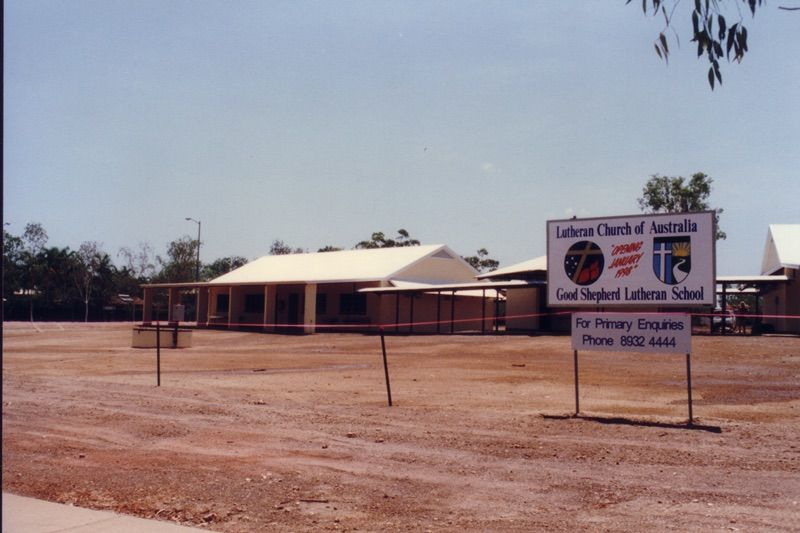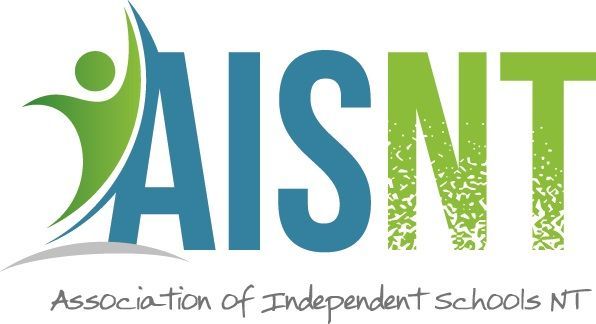Some Things for your Kitbag
The plane was meant to leave Alice at 5.20 PM. I was relying on it being reasonably punctual as I had to leave Darwin next morning at 4.45am and drive to Katherine for a 9.00am BGA appointment. Silly me! The flight was delayed 2 hours! However there is often good in most things. I sat, by chance next to a former student, his wife and little girl. How great! Like most teachers I always like meeting former students, find out what they are doing, how they are going and meet their family, a real bonus. This student who had left school some 10 years ago said to me he remembered my talk, which I gave at assembly most years, on the brass pot and “elbow grease”, a humorous phrase for hard work.
As has happened he has worked hard and been successful. As I gave the talk I would vigorously polish the very dull brass pot with brasso and “elbow grease” and really make it shine. I was so pleased that he had remembered the assembly presentation with its true intention. It would have been a pity if he had remembered how to shine a brass pot but forgotten the meaning of the story - “elbow grease”/ hard work produces results. Just by chance I’m looking at the same brass pot displayed on my dresser in the lounge room. I found that these analogies, with something memorable to display, actually worked quite well. The hope is the students get the true purpose of the story and not something else e.g, “how to clean a bass pot!”
Now back to the Law of Diminishing Returns I wrote about last week. A psychologist I knew showed me how it can be applied to stress. Initially a teacher may have no stress, but then it begins to build. It may continue to rise with its level acceptable, but if it does continue to rise it will eventually reach a level which is unacceptable. The problem is that this level is difficult for a Principal to predict and will vary from person to person. A point will be reached when the stress produces an ongoing decline in performance which has a negative effect on the students and therefore is counterproductive to the school.
This is not easy to deal with in a profession which is mostly based on egalitarian principals. A very resilient teacher may find it difficult to accept that a colleague cannot shoulder the same workload as them. This is indeed a hard one to solve and requires creative and wise thought to tackle the inevitable decline in productivity as well as trying to maintain a feeling of fairness.
I saw a show on TV once that displayed, in America, a famous stretch of road which appeared to be going downhill but was actually going up. A car was shown rolling up a gentle hill. I would have doubted the reality of this had I not had the same experience myself. Once upon a time Jill and I had 40 acres of farmland on the flat land around Greta out from Wangaratta where we taught. There was a channel running the length of the property which I could swear sloped from north to south. However, after a heavy rain the channel would flow, but clearly from south to north. No matter how long I looked at it with my puzzled expression the water definitely continued to flow from south to north. What an illusion! The story can provide an analogy for Principals to use with staff or students but also in solving problems themselves. The key helpful thought to use, not infrequently, is “is this really as it appears”. The obvious is not always the reality and the truth can be determined by looking at a situation in another way.
Michael Jenkins who, over time, was Principal of two boarding schools in England, was a friend of mine and had been a pupil of the famous Kurt Hahn at Gordonstoun. I asked “what was one of Kurt Hahn’s pieces of good advice”. He replied that Hahn would often say in response to an idea, answer or solution, “Are you sure?”. I’ve never forgotten that and it has served me well over the years. Often the real answer lies in another direction to which you can be blinded because you are so sure your first answer was right.
One of my keen interests is in the stories of schools and their origins. Why does someone or some group decide to go through the tough, challenging and expensive business of starting a school? Of course there are plenty of interesting examples of this in our own Independent Schools of the Northern Territory where very unique and interesting schools have been started. So often they relate to particular ideas, passions and ways of effectively serving a community. This is true in most places I have visited. Part of the challenge of schools is to stay true to their philosophy while welcoming new thinking which may enhance their purpose. However care must be taken at the same time, ensuring the development doesn’t compromise the fundamentals of the original philosophy upon which the school was founded. The legal system relating to the schools has to be taken into consideration as concerns about risk and safety, pastoral care and contract, gender and beliefs, discrimination and equality, change over time as do approaches to teaching and learning. A Principal can never be blind to such things but should make sure their knowledge is in fact truly up to date.
The final thought I would like to mention is about Opportunity Cost. I always found this as a useful idea from my Economics Degree as I travelled through my journey as a Principal. It is also a good concept for staff to understand and for older students to take on board.
The Opportunity Cost in terms of a school is what a school has to give up in order to purchase something. If the PE department wants a jumping mat, but the science department wants a powerful microscope and there is only money for one of them, then the cost will be the microscope if the jumping mat is chosen, and vice-versa. These choices can be pretty hard to make and may lead to some dissatisfaction, so need to be handled carefully. Maybe the jumping mat this year and the microscope next year. However some staff members are more impatient than that. Obviously half a jumping mat and half a microscope won’t cut the mustard. I found many staff members understanding if they knew they would get what they needed in the end.
Being a Principal is a complicated job demanding thought and understanding on so many levels with multiple decision to be continually made.
SOME SAYINGS WHICH YOU MIGHT BE ABLE TO USE.
“A State which has universal suffrage and a wide extension of the jury franchise, must qualify the people by education to rightly exercise the great powers with which they are invested.”
- Edmund Barton, Australia’s first Prime Minister.
“Think a hundred times before you take a decision, but once that decision is taken, stand by it as one man.” “I do not believe in taking the right decision. I take a decision and make it right.”
- Muhammad Ali Jinnah, Founder of Pakistan.
“You have got to try and reach the stars or try and achieve the unreachable.”
- Cathy Freeman , Aboriginal Australian Olympic 400meters Champion who won gold in the 2000 Sydney Olympic Games.
“I’m sick of good intention, the slowness of the jurisdiction. They have to get much better at embracing change and changing the way they work with people. Governments need to get their skates on.”
-Pat Turner AM lead convener of the Coalition of Aboriginal and Torres Strait Islander Peak Organisations (Coalition of Peaks) and one of Australia’s most prominent Indigenous Women Leaders.
“Neither winning nor losing means as much to me as knowing the crowd has enjoyed my match.” “When you have a dream you have to work hard to achieve that dream. Your dream, when you are young, can be the force that keeps you going.”
- Evonne Goolagong Cawley, Australia’s former World No 1 tennis player.
“Chase your dreams….but make sure you don’t find shortcuts to them.” “If you don’t execute on your plans, then you don’t reach anywhere.”
- Sachin Tendulkar Indian Cricket Captain who was one of the world’s all-time great cricketers and highly respected as a wonderful person.
“To travel, to experience and learn: that is to live.”
“I have climbed my mountain, but I must still live my Life”.
- Tenzing Norgay(1914-1986). He was a Nepali Indian Sherpa mountaineer. With Sir Edmund Hillary, was the first to summit Everest May 29, 1953.
“Loneliness is the penalty of leadership, but the man who has to make the decisions is assisted greatly if he feels that there is no uncertainty in the minds of those who follow him, and that his orders will be carried out confidently and in expectation of success.”
- Ernest Shackleton (1974-1922). Arctic explorer who had a reputation for amazing leadership in a protracted crisis as shown by taking all his men to safety after his ship, the Endurance, was lost to the ice.
“Thought creates Character”.
- Annie Besant (1847- 1933). Regarded as a champion of human freedom. She was born in Ireland became a socialist, was an ardent supporter of Irish and rule and became president of the Indian National Congress in 1917.She was champion of the human rights of women in India. She was a founder of the Banaras Hindu University and helped establish the Central Hindu School.
“You cannot warm the hearts of people with God’s love if they have an empty stomach and cold feet.”
- William Booth(1829-1912) founder of the Salvation Army in England.
Chris Tudor
Principal Liaison & AISNT Historian



